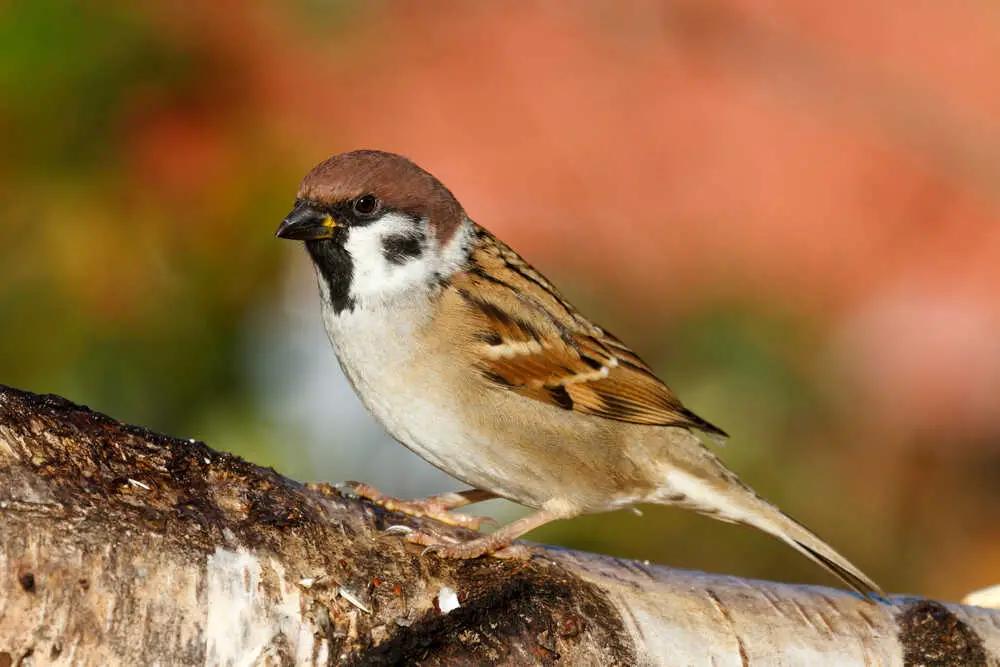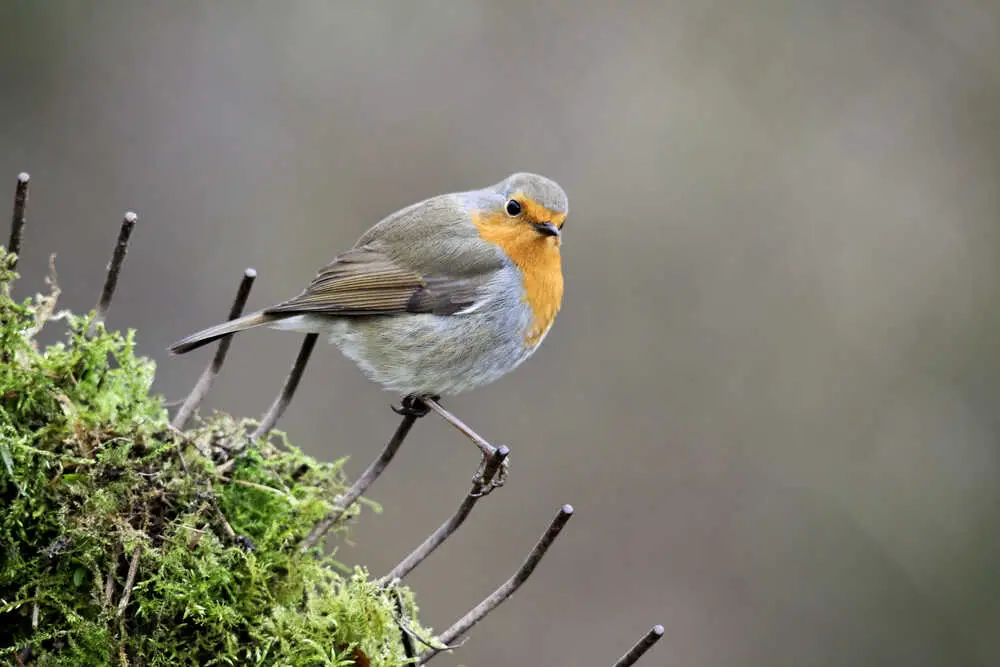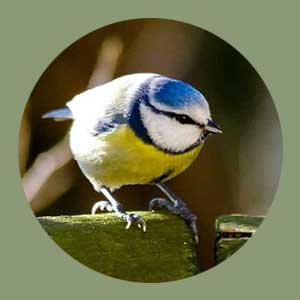One of the most frequent questions I’m asked is where have the garden birds disappeared to, and why are they no longer emptying my feeders?
It is never more prevalent than during mid-late summer. Balmy evenings finally have a pleasant temperature to sit out and enjoy the company of our feathered friends – and there aren’t any around.
It’s not just that the sight of birds not feeding at my tables, the sound of their song is missing from the air, the dawn chorus doesn’t wake me from slumber.
Many people believe the lack of birds at this time of year is due to migration; it isn’t. There are around 50 species that leave the UK and head south in search of warmer climates, but this doesn’t occur until late autumn.
The primary reason we see and hear fewer birds during summer is that they have found plentiful food sources elsewhere. Although they are grateful and sometimes reliant on our supplementary feeding, seeds, wild fruit, and berries are available elsewhere.
Once the last of their young have fledged, adult birds have no need to stay in their nesting spot. Many species leave their territory altogether and set up camp closer to natural food supplies.
The final reason that birds disappear from gardens in summer is due to vanity and self-preservation.
At least once a year, birds moult; they lose their existing coat, new feathers grow.
Birds don’t look at their best at this time and prefer to stay hidden away from view.
Their ability to escape predators is also reduced when their wing feathers aren’t fully formed.
Table of Contents
Where do garden birds go in summer?
Breeding season is demanding for birds. They expend large amounts of energy acquiring a mate and a territory, nest building, laying and incubating eggs, and raising their young.
Considering some brood contain 7 or 8 chicks, it is little wonder that birds are worn out during summer.
When the last nestling fledges, adult birds take the opportunity to recover. Some move further afield, often into the countryside, to take advantage of spilt crops farmers leave behind after harvesting.

House sparrows, starlings, and finches head to gobble up the grains that the favourite combine harvester missed.
Inner-city sparrows and finches also expand their food search, choosing to settle on scrubland where the seasonal weed crops are rife with seeds.
If your garden housed a blue tit family during spring, note that the nest empties before mid-summer. Tits abandon their nests in favour of gathering in family groups, high in tree canopies. Over time, these groups swell into larger flocks.
Song thrushes and blackbirds move in great numbers to where wild fruit and berries grow in abundance.
Garden birds haven’t disappeared; they are just harder to spot as their reliance on humans and feeding habits decreases.
Where garden birds go to moult in summer
Moulting is a process that all birds do. Much as pet cats and dogs lose fur, birds shed their feathers annually.
They need to replace feathers that have been damaged, deteriorated, or lost colour throughout the year.
Some species moult at different times of the year, but most garden birds wait until August to re-feather. It is (unreliably) the hottest month, and their bodies get cold quickly as they wait for new growth; hence, they can’t wait until later.
It is also the month when they have the least to do. The chicks have flown, food and insects are plentiful, and winter preparations needn’t start yet.
Birds gain a scruffy appearance as they moult; the untrained eye might think they have a disease. With fewer feathers, their energy is sapped, and their flying ability is affected.
Birds choose to find shelter and hide during daylight hours. Often this is in woodland or dense vegetation; they are vulnerable and struggle to escape predators.
Moulting expends lots of energy; the birds might be out of view, but they still appreciate some high-energy snacks. Sprinkle treats on the ground around any dense shrubbery to tempt them out of their hiding place.
Why do birds go quiet in the summer?
You might notice how quiet most birds go during summer. This isn’t a sign that they’ve disappeared; they go silent as they have little need to sing.
Males bird species’ are more vocal than females. It is usually to attract a potential mate, protect her and their territory, or fend off predators. Empty nests mean there is little need for the birds to make much sound. Robins and wrens are the exceptions to the rule; they like to show off their singing voices all year-round.

The end of the usual dawn chorus is normal behaviour and to be expected as summer rolls around.
Birds still use their calls to communicate with each other through summer, but these are significantly less audible to humans.
The loud song draws attention, and that’s the last thing that birds want when they are trying to fly under the radar.
As winter fades into spring, the sound of birdsong fills the air again. Males resume showing off, trying to catch the attention of females.
Will birds return to gardens after summer?
There is no need to panic; the birds haven’t left our gardens for good. As the late autumn evening, frost starts to settle, birds struggle to source natural food.
They head back to the feeding tables hoping to find morsels to supplement their diet.
When temperatures drop, they hunt for safe places to roost overnight, be that abandoned bird boxes for the wrens or dense ivy and shrubs for the sparrows and tits.
As long as garden birds have food and shelter, they will always find their way back to our gardens. Be prepared for them to disappear for a while in the summer.
Final Thoughts
I know the demoralising feeling of filling your feeders with various delights for the birds during summer, only to find them still there days later.
It isn’t anything to worry about, and we should still offer fresh food and water daily for those that make it to the bird table.
The circle of a bird’s life means that it is natural for them to disappear from our gardens in summer only to reappear in winter. They make their return when the stock of nature’s food runs low, and they need a little help.

Thank you so very much for this timely article. My inclination was to think the birds were somehow harmed by water supplies that were tainted or by food that had gone bad in feeders and that they had moved on for those reasons including predation by our visiting hawks. It’s so reassuring to know that this is a natural process and that nothing humans have done is causing this natural event.
Excellent commentary on bird’s.
Excellent! You answered my query completely and so much more. I felt exactly as you described, saddened by the sudden lack of sparrows in my garden and feeders hardly touched, if touched at all. It was especially noticeable after such an abundance of them in my garden this year. Thank you for putting my mind at rest.
HS
Yes, you have helped me not to be anxious because suddenly there are untouched feeders and no tweeting. Thank you.